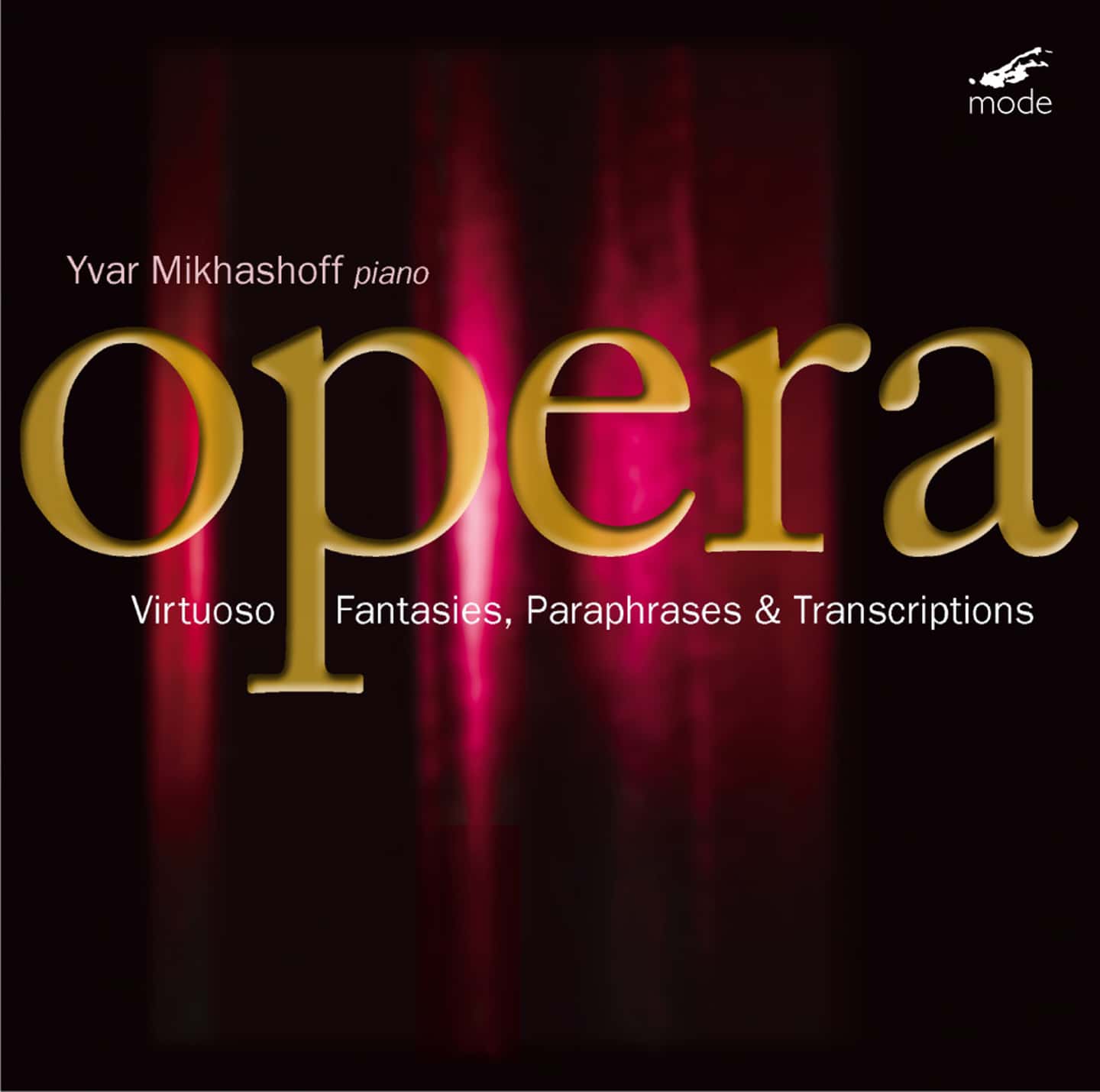Yvar Mikhashoff, piano
CD 1: The Traditional
Giacomo Puccini (1858-1924)
Trittico Fantasy (Fantasia on Themes from Il Trittico) (17:01)
I. Barcarola
II. Canzone degli scaricatori
III. Valzer dell’organetto
IV. Intermezzo
V. Aria “Senza Mamma”
VI. Passo
VII. Romanza “O mio babbino caro”
Dedicated with much affection to Sylvano Bussotti
(Final copy, 21:50, June 1, 1991, Buffalo, NY)
Vincenzo Bellini (1801-1835)
Casta Diva from Norma (8:13)
Preludio
Introduzione
Aria (Norma sola)
Coro
Aria Variata
Cadenza
(Buffalo, Sept 1, 1991)
Giuseppi Verdi (1813-1903)
Introduction & Aria: “Caro Nome” from Rigoletto (1976-1991) (7:20)
Giacomo Puccini
Vissi d’Arte, Aria from Act 2 of Tosca (4:53)
Dedicated with affection and admiration to my dear friend Haydée Schvartz
(Amsterdam, May 19, 1991)
Giacomo Puccini
Portrait of “Madame Butterfly”
An operatic sonata-fantasy on themes of Puccini in 4 parts (14:00)
Prelude
Scherzo: Flower Duet
Nocturne
Finale
(Aloft NY-London, 7 am GMT, May 27, 1992)
CD 2: The Modern
Claude Debussy (1813-1903)
Intermezzo & Final Scene from Pelléas et Mélisande (1992) (9:48)
Alban Berg (1885-1935)
Wirtshauswalzer from Wozzeck (2:21)
Sylvano Bussotti (b.1931)
Pianobar pour Phèdre from Le Racine (12:33)
Passo: “La Romanza al Sol” – Prelude – Coda
(Breukelen, June 13, 1981)
Kevin Volans (b.1949)
Striding Dance from The Man with the Footsoles of Wind (5:00)
(London, July 15, 1992)
Piano transcriptions of some of the most beautiful music ever written!
Yvar Mikhashoff’s inspiration to make opera transcriptions in the grand style of Liszt came from none other than John Cage. Cage’s Europera 5, written for Mikhashoff in 1991, required him to play six operatic excerpts at the piano, each a specified length with certain dynamic requirements. Finding appropriate transcriptions in the existing repertoire was difficult, and so Mikhashoff eventually decided to draw on his experience as an opera and lieder coach in Austria to experiment with arias he knew and loved.
A piano virtuoso, Mikhashoff performs premiere recordings of his own transcriptions from opera composers who lived in the 20th century, adding a major body of attractive, important new virtuoso piano works to the literature.
Casta Diva from Norma (Bellini), is transcribed in a Chopin-esque style – appropriate since Bellini and Chopin were close friends.
Introduction and Aria: Caro Nome (Verdi) is a fantasy portrait of Gilda, the ill-fated heroine of Rigoletto.
Portrait of Madame Butterfly (Puccini) preserves the high drama of the opera – including the Humming Chorus and the Flower Duet – in a very elaborate rewriting that demands the highest degree of virtuosity.
Pélleas et Mélisande (Debussy) is largely drawn from the orchestral interlude which separates the second and third scenes of Act IV and from the conclusion of the opera’s fifth act. These final pages are some of the most touching Debussy ever composed and Mikhashoff has confined his reworking to some delicate touches of decorative arpeggiation and voicing.
Wirtshauswalzer from Wozzeck (Berg) is played by the small off-stage band in the beer garden scene. It combines pure German waltz style with Bergian harmonies.
Vissi d’Arte from Tosca (Puccini), is the unforgettable aria sung by Tosca as she reflects on her life (“I lived for art…”). Here Puccini’s music is barely altered – the vocal and instrumental parts combine perfectly.
Trittico Fantasy (Puccini) begins with a set of short reminiscences from Il Tabarro, then moves on to the “Senza Mamma” from Suor Angelica and finally to “O mio babbino caro” from Gianni Schicci.
Bussotti wrote his opera La Racine (premiered at La Scala in 1981) for Mikhashoff – a tour de force as he was onstage as the pianist for the work’s 2-hour performance, and was one of the few instruments in the opera’s orchestration. Pianobar is a transcription combining the voices and piano music into a 7-movement suite.
Striding Dance comes from Volan’s opera The Man with the Footsoles of Wind, about the last days of Arthur Rimbaud in Africa and his return and death in France. Mikhashoff completed the transcription under the direct supervision of the composer.

